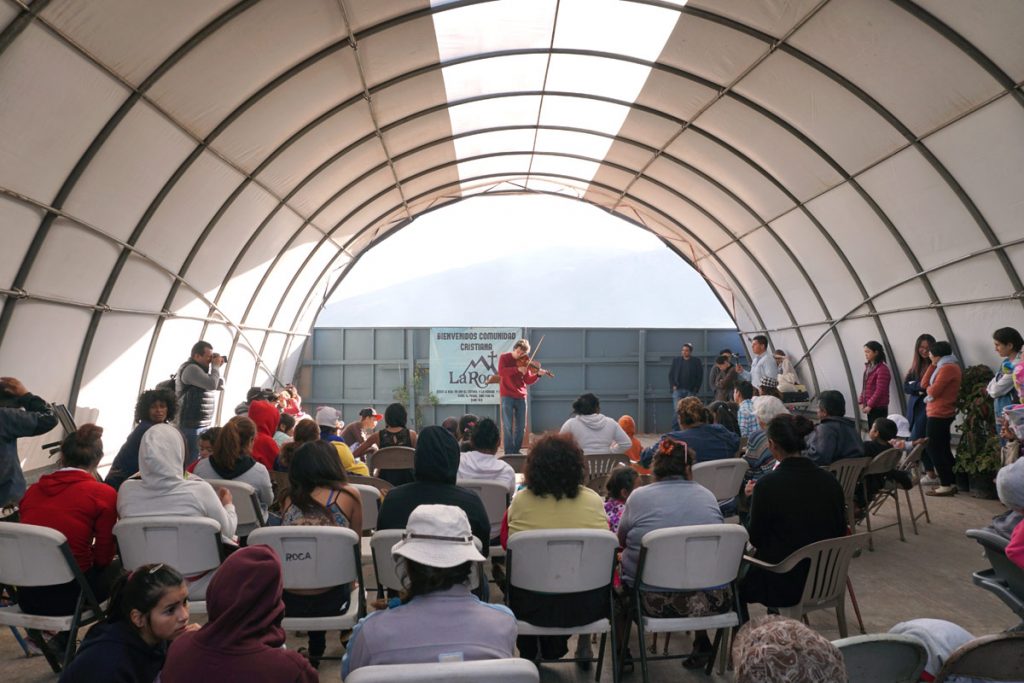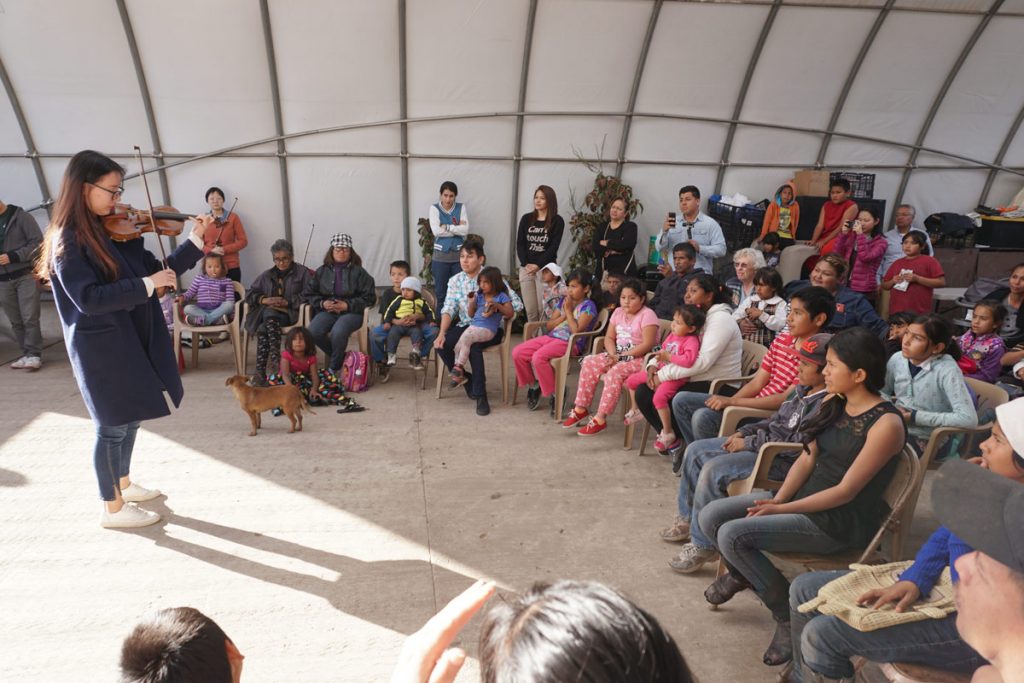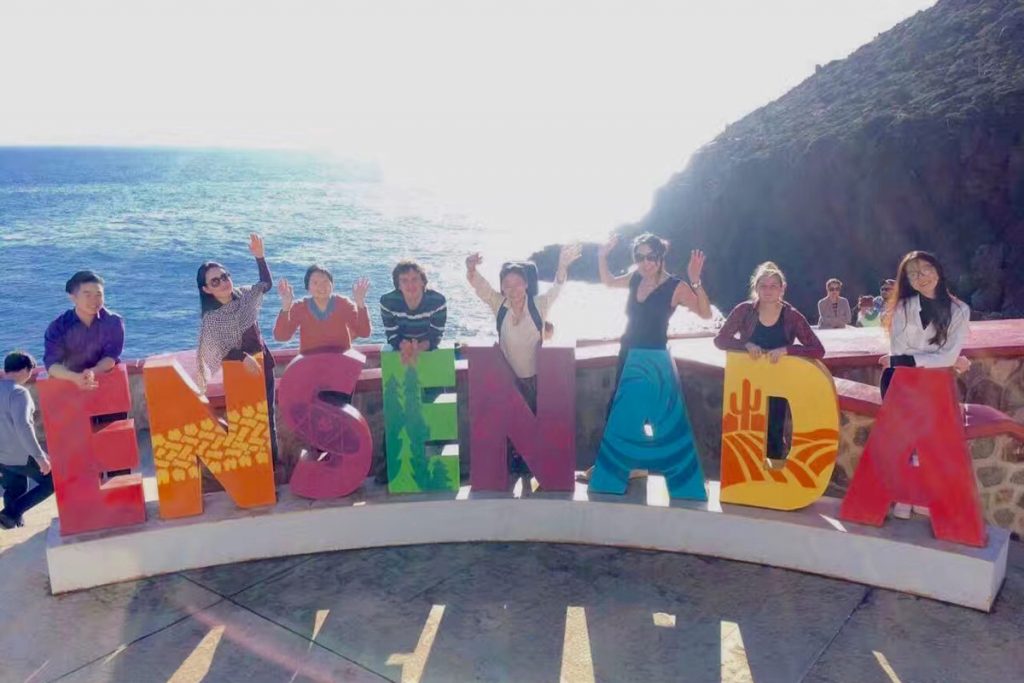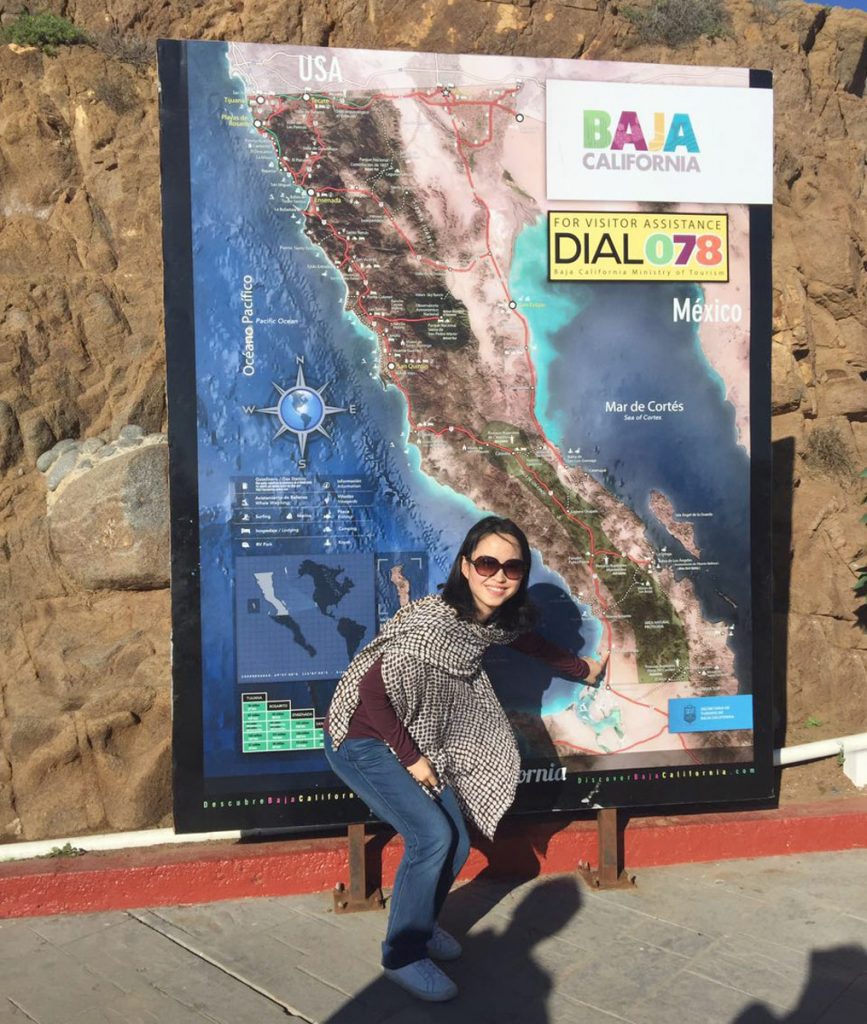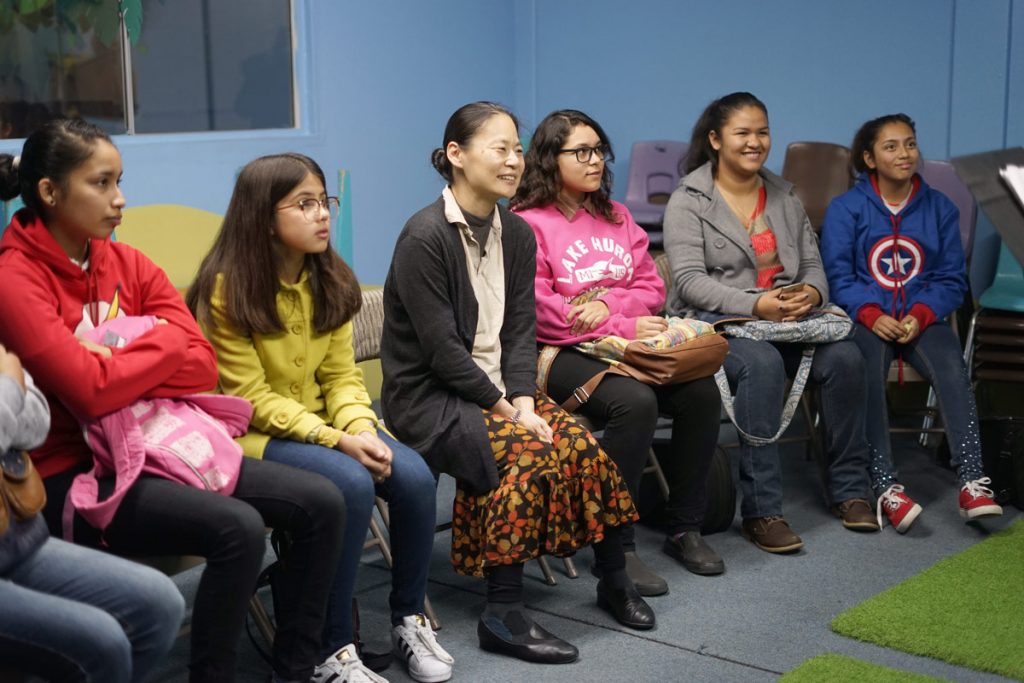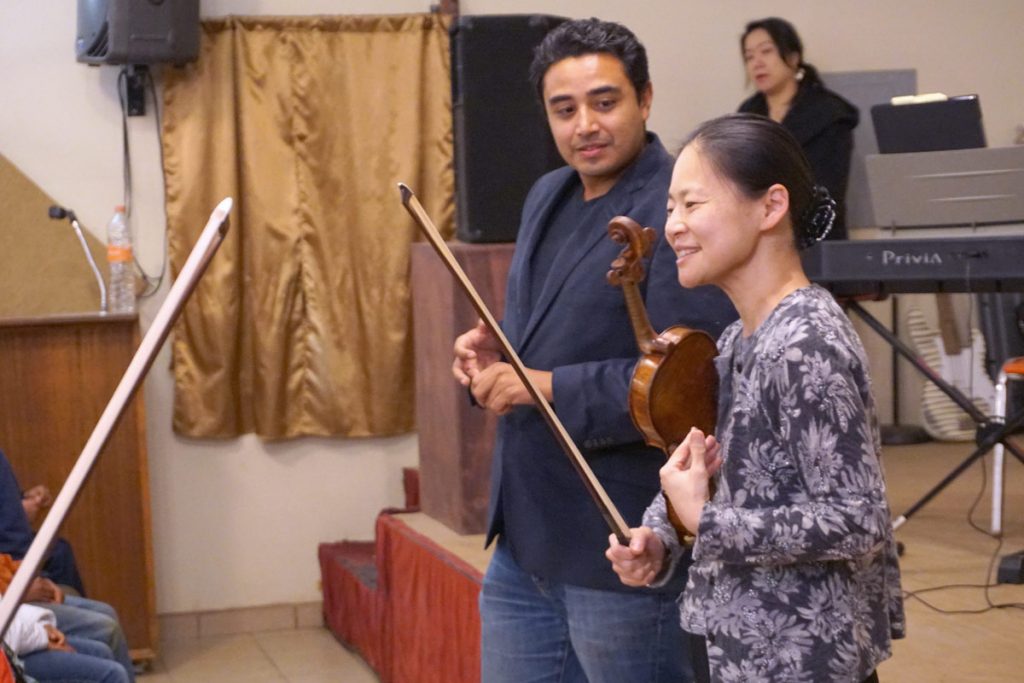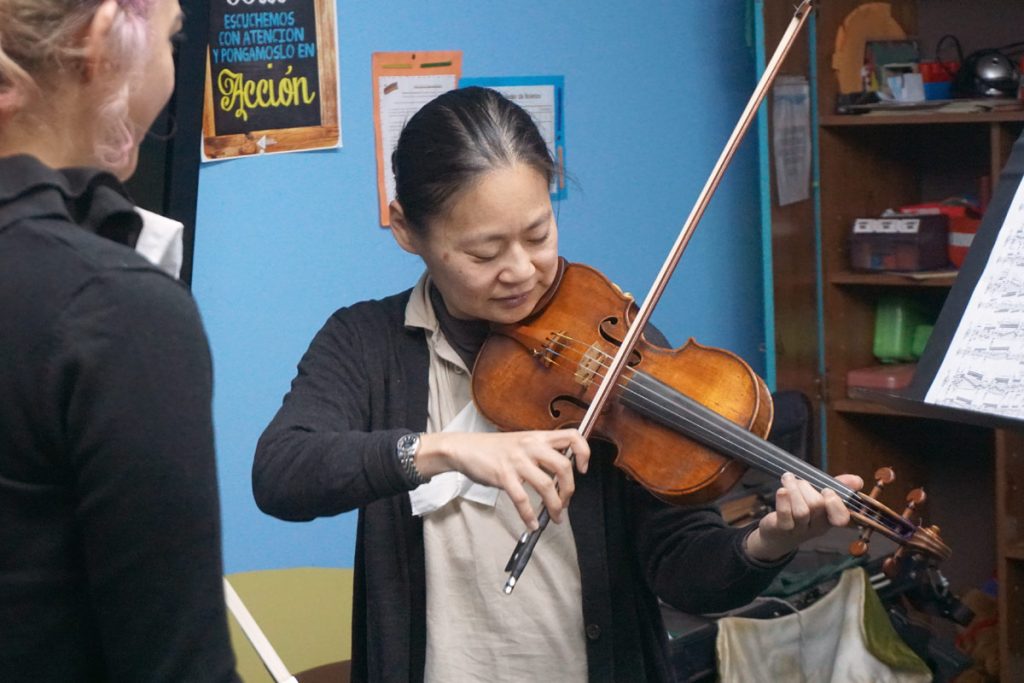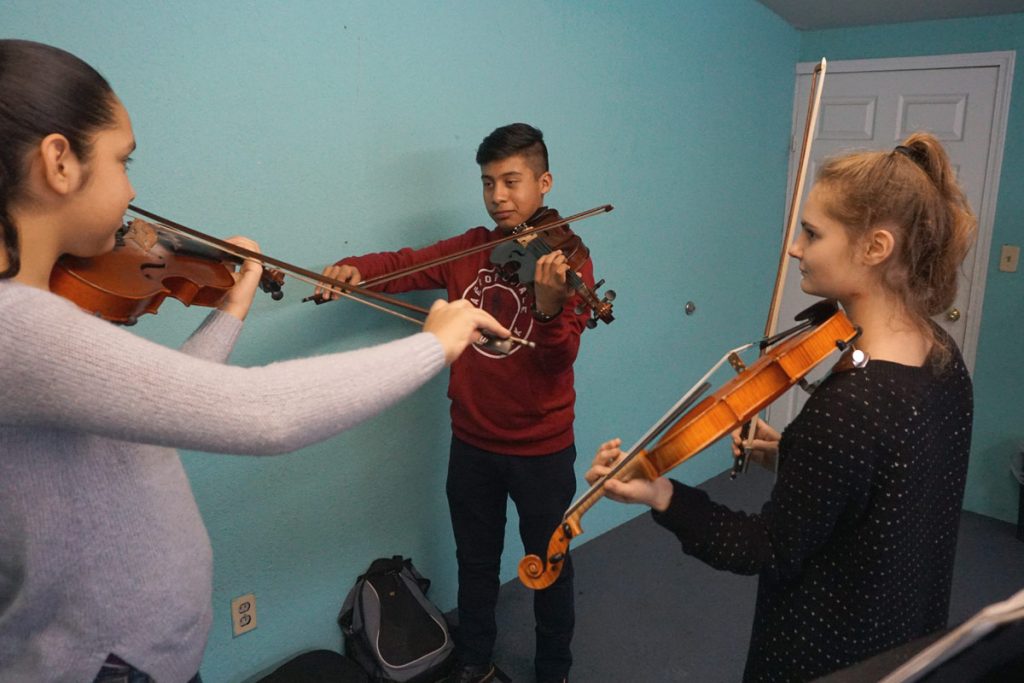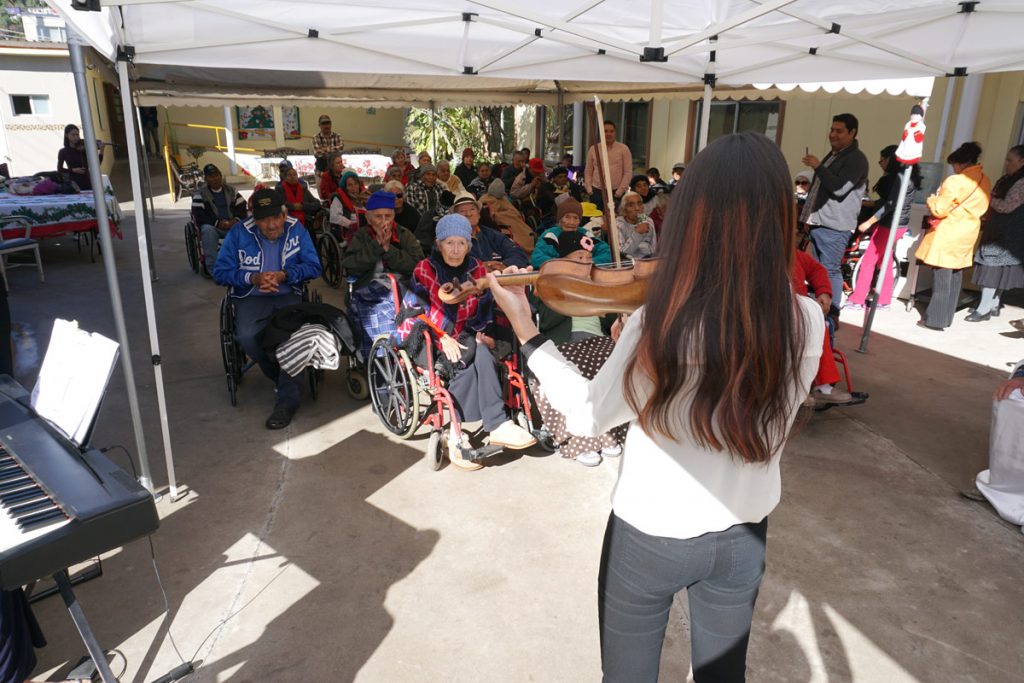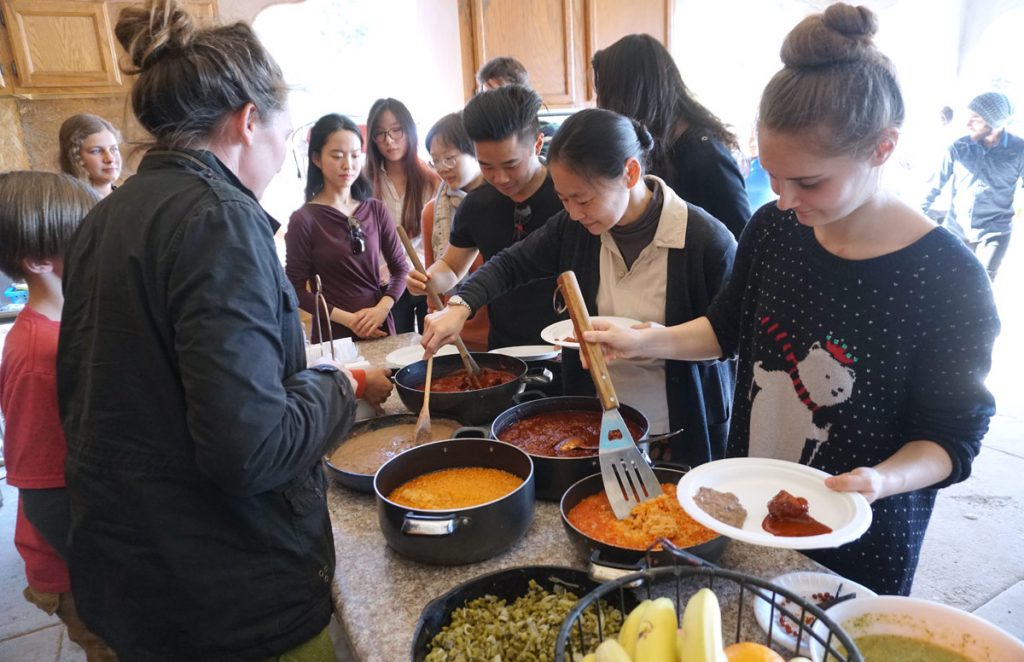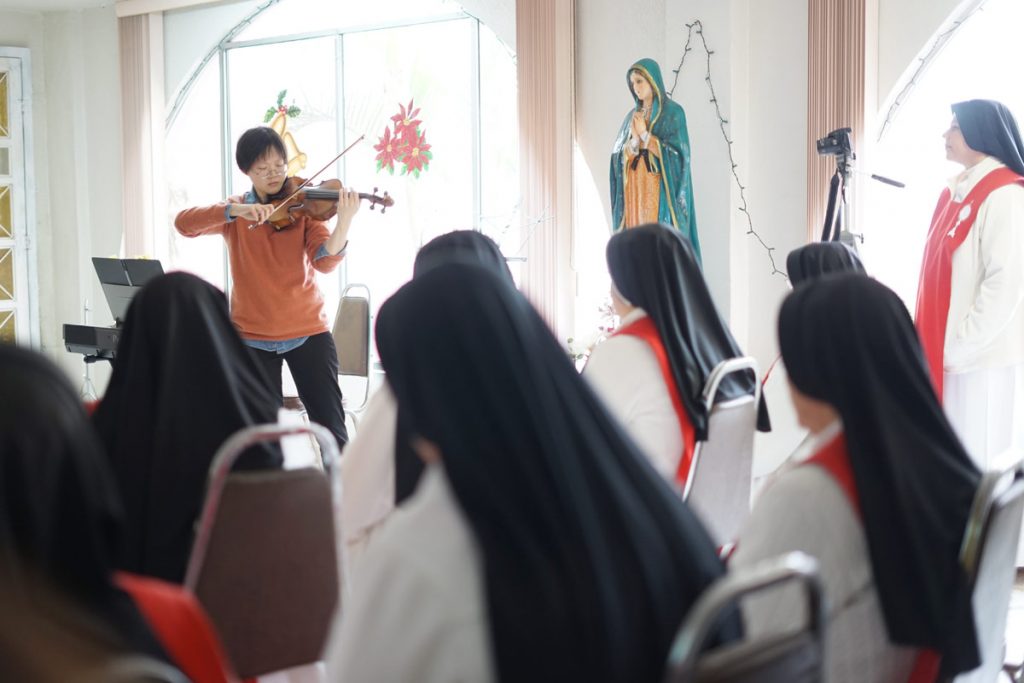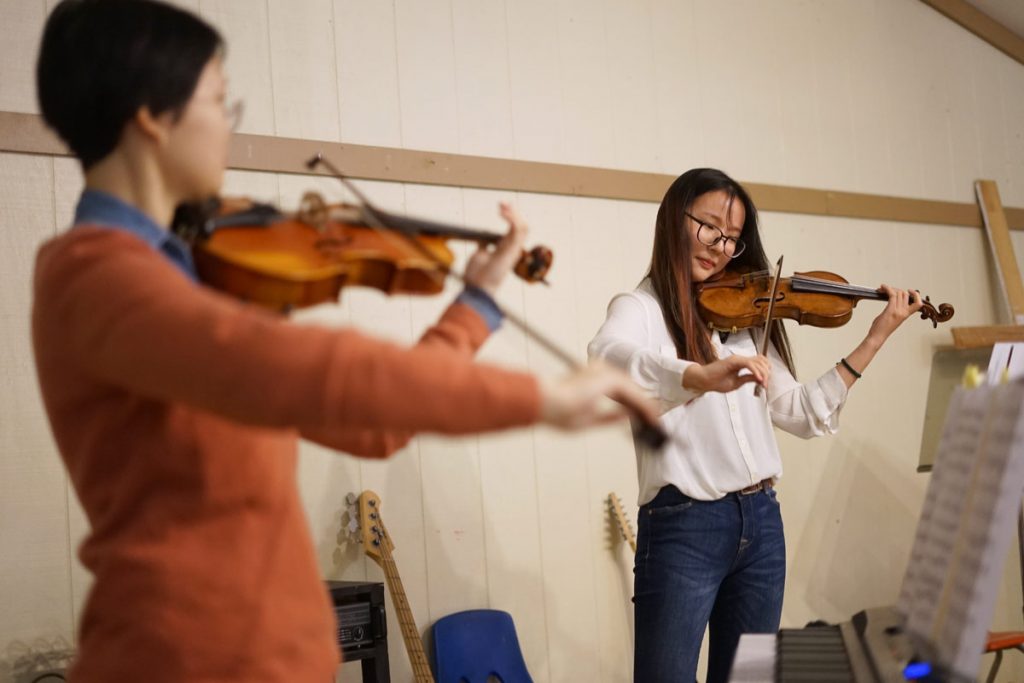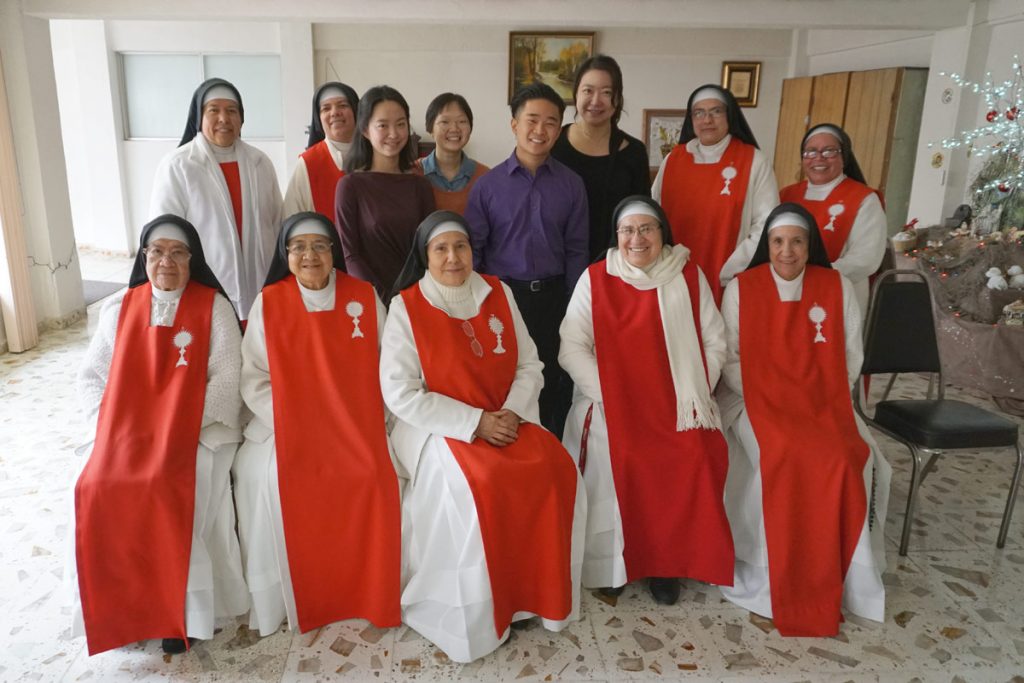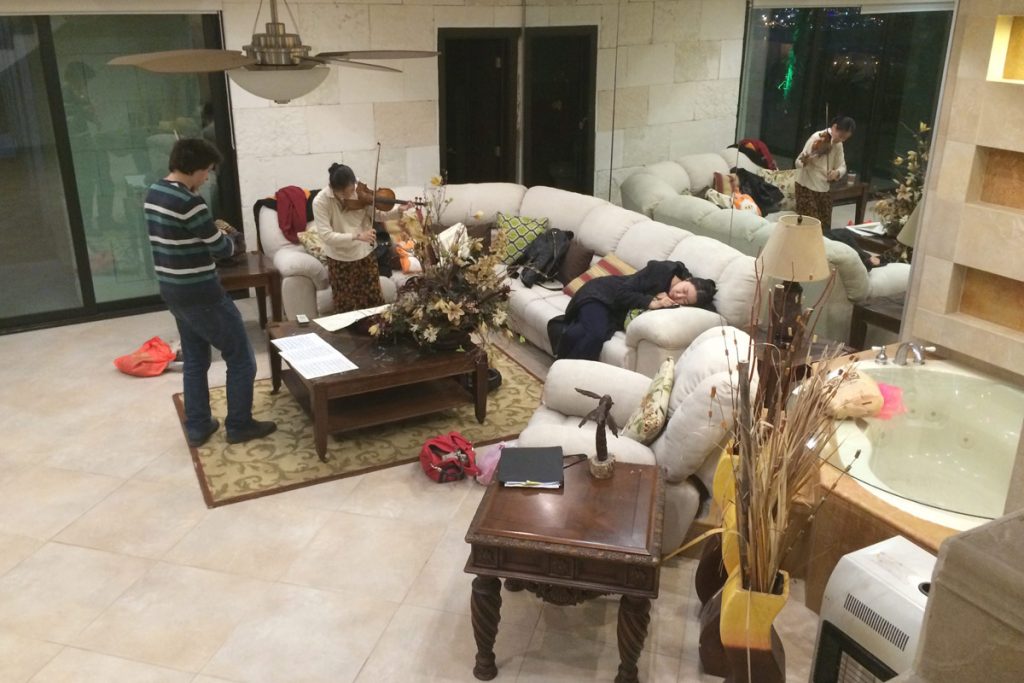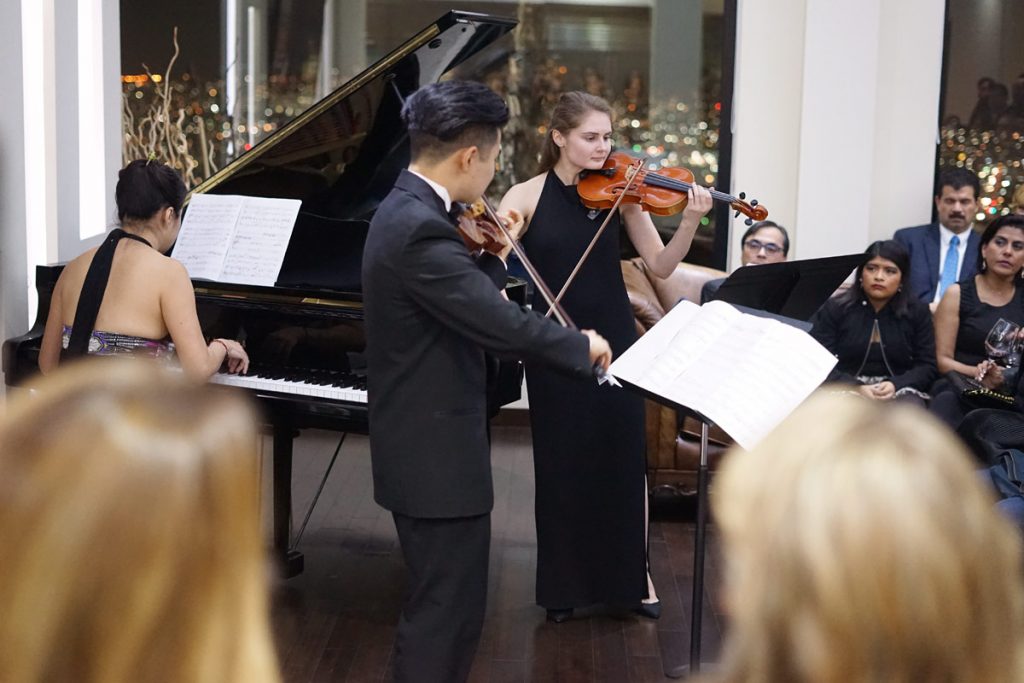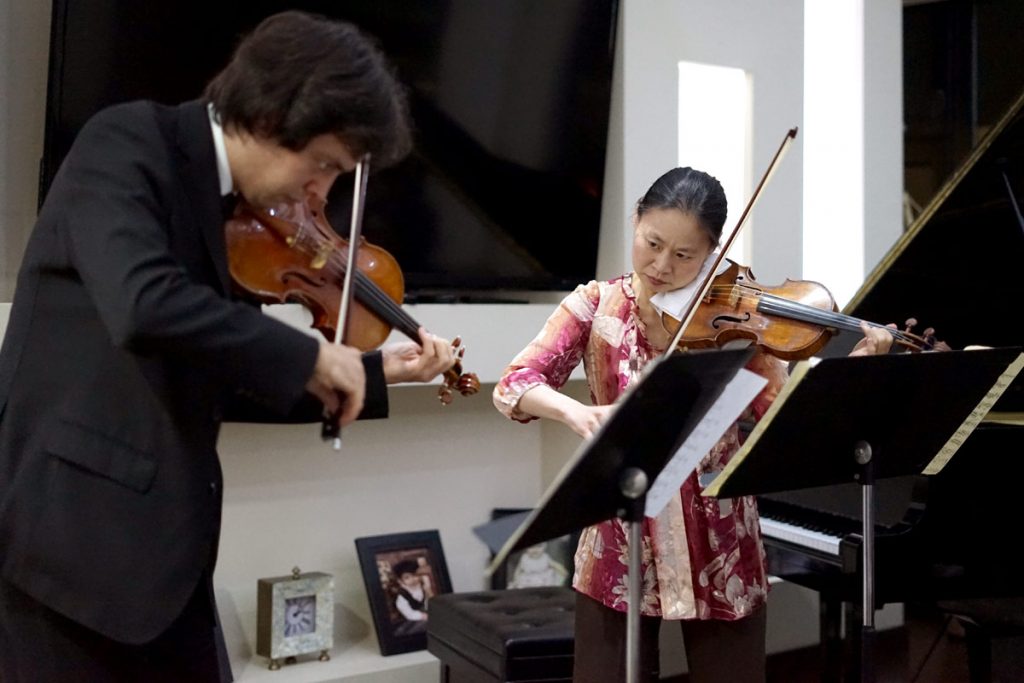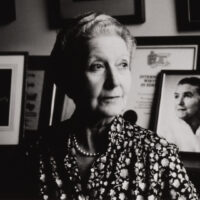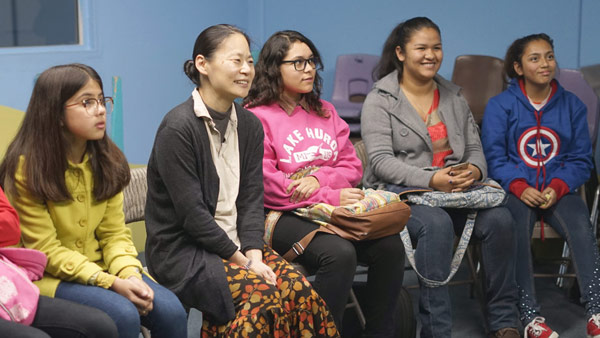
Sharing Music Beyond the Concert Hall
By Julie Riggott
https://youtu.be/Wkt28poIyiA
In this video, Midori Goto reflects on her teaching philosophy of music as a means to connect.
For Midori Goto, playing violin is about more than hitting the right notes on a treble-pitched instrument with four strings. The renowned violinist, who debuted as a child prodigy with the New York Philharmonic under Zubin Mehta, knows that music tugs at heartstrings as well. So why should it be reserved for concert halls?
As Distinguished Professor and Jascha Heifetz Chair in Violin at the USC Thornton School of Music, Goto, who is known professionally the world over by her first name, Midori, takes her violin studio well beyond traditional venues. Of course, her students have performances in acoustically fabulous halls and at black-tie affairs. But they must practice just as hard for their outreach concerts in the community around USC, passing muster with Goto before joining her at nursing homes, rehab centers and juvenile halls. It’s a requirement that she hopes will help them become not just exemplary musicians, but also well-rounded global citizens.
“Learning music and performing music for a reason is very meaningful,” Goto said. “It’s not about knowing more pieces, it’s not about knowing how to play right, but what the students can do with the music.”
Goto has made outreach to underserved children and communities her life’s mission. Through her work at USC and the three nonprofits she founded, Midori & Friends, Music Sharing (based in Japan) and Partners in Performance, Goto maintains an active international performance schedule.
“Having done outreach for 25 years, I feel much closer to music,” Goto said. “It changes you as a person. It makes you into a more fully living person, I believe, and that then does make a difference as an artist in your music making.”
Above, scroll through an album of images from the trip.
Goto and three of her students took time during a hectic week of practice before a USC Thornton Symphony performance at Walt Disney Concert Hall to talk about their most recent outreach visit — to Mexico. Funded by Goto’s Artistic Excellence Award from USC, Goto ventured South with five of her students at Thornton, a high school student who studies privately with Goto, and her studio’s pianist for four days during winter break to perform concerts and master classes at Benning Academia de Música, a community music school in Ensenada, and the academy’s various satellite venues, including an orphanage, a convent, a juvenile hall and a native reservation.
Their first stop was a dump. Literally. Well off the radar outside Tijuana is a community that has made its home in a landfill. Goto and her students set up on a makeshift, partly covered stage and played their hearts out.
“On the day we got to the dump, kids surrounded our car, running around, laughing with each other, as if there were nothing in the world to be worried about,” said Yue Qian BM ’17. “It was a new experience for them to hear the violin, but it was more of an opportunity for me. When the kids came up and hugged us after we performed, there was nothing more in the world that I would ask for.”
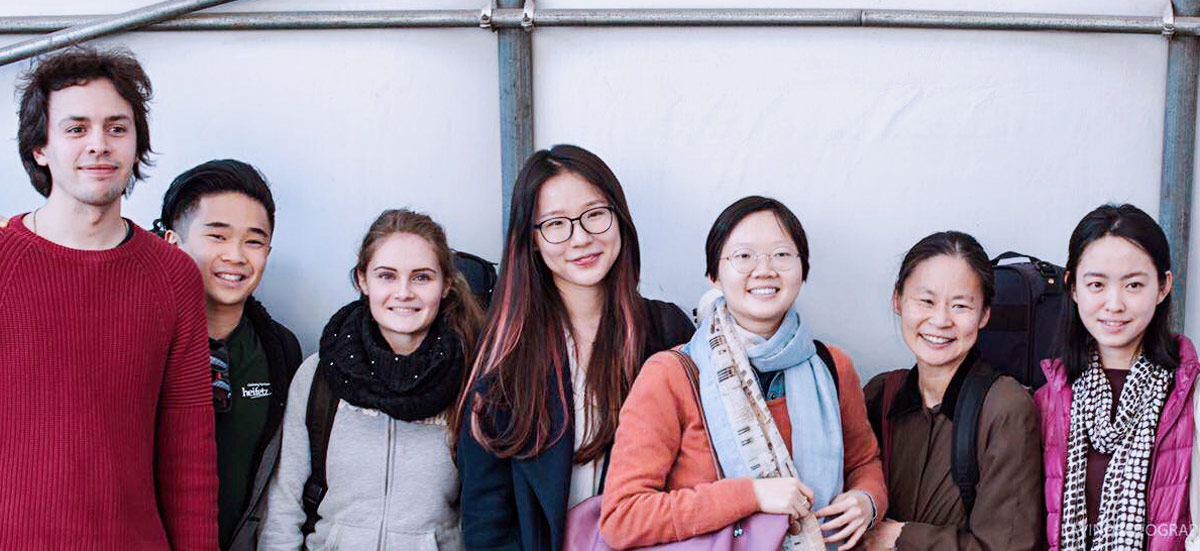
From left to right: first year Master’s student Orest Smouzh, sophomore Albert Yamamoto, Midori’s private student Liliya Milcheva, senior Yue Qian, DMA candidate Yabing Tan, Midori, and Graduate Certificate student Chang He. (Photo by Moises Encino)
“I like to think that the work we do with outreach is past just playing the music,” Goto said. “Yes, we introduce people to music, but it’s a social occasion. It’s an opportunity for both sides to interact with the outside world, a world that’s beyond our usual means. It’s an opportunity to connect and to really explore possibilities.”
Qian, who came to USC from a competitive music background, said she used to think that playing music was only for teachers and colleagues. “I was always so worried about playing every single note in tune, having absolutely no memory slips while performing and getting a good score.”
Studying with Goto and performing outreach concerts, Qian’s outlook has changed. “This trip helped me to reconfirm that music playing should not be just between professionals,” she said. “It is not enough only for us to have passion for it, but only meaningful if we share it with more people.”
The trip, the first to Mexico for Goto and all but one of her students, was a cultural exchange not only through music, but also through getting to know the people and eating local food. In Ensenada, all seven musicians slept in sleeping bags in an orphanage. In the morning, they picked oranges from trees for breakfast. They bought handmade tamales and fish tacos from street vendors.
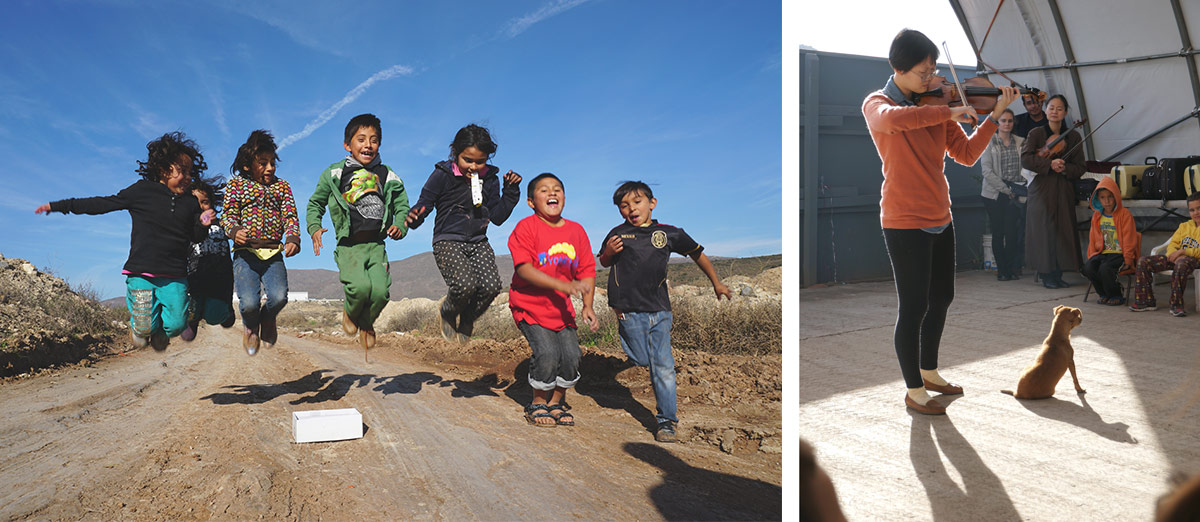
At left, children in Tijuana. Right, Yabing Tan makes a friend while performing in a church. (Photos by Moises Encino)
“One of my most memorable moments was when we went to a native reservation and played a concert,” said Albert Yamamoto BM ’19. “Afterwards, many people hugged us and thanked us. They served us some of the best food I have ever eaten, all grown by them. What I enjoyed so much about this experience was the feeling of happiness, community and love.”
Many in the audiences they played for had never heard a violin. Orest Smovzh MM ’18 said that the people were able to appreciate music in a completely different way. And that is something all musicians need to experience. “Professional musicians need to get out of their practice rooms, and the society of those who can find five arguments on how to play a single note, and finally play for those for whom it will be a life-changing event,” he said. “The ability to see someone crying during every concert is what makes you remember that, in the clouds of self-criticism, one should not forget about the ray of beauty that our music should reflect.”
Yes, Goto pays vigilant attention to repertoire and musicianship. There are plenty of scales, Bach and orchestral excerpts, recitals. But “the performances in places for people in need of care, music and attention help us think of our role as artists,” Smovzh said.
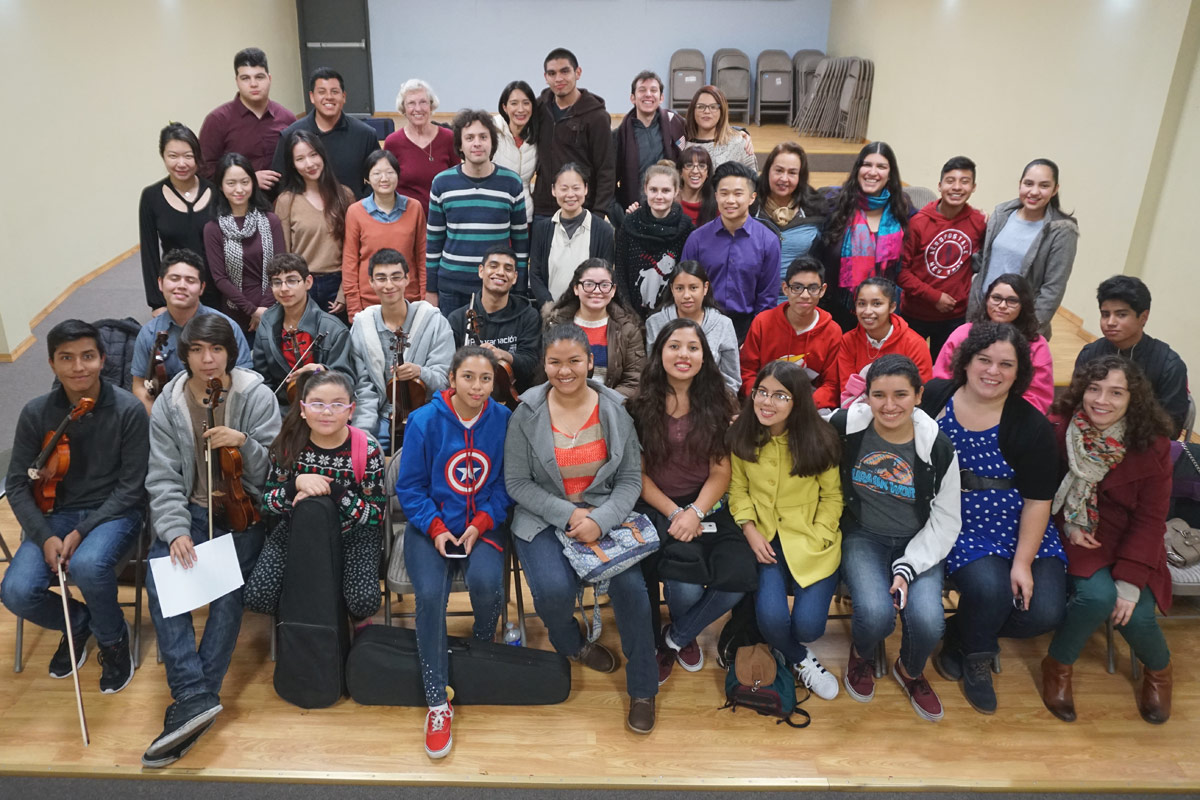
The USC group presented several masterclasses for students at the Benning Academia de Música in Ensenada. (Photo by Moises Encino)
This practice all comes down to an important premise for Goto, one that her students obviously appreciate. “When I play the violin, I’m not trying to show the audience how proficient I am at violin,” said Yamamoto, “instead I am trying to tell a story and share an emotional experience through the beautiful sounds of the instrument. That is something that everyone can enjoy, and we shouldn’t keep this experience from those who can’t come to concert halls.”
Goto described her relationship with her violin studio students as a partnership and a friendship that teaches them — and her — not only about music and artistry, but also about life. “We are sharing — they’re learning from me, I’m learning from them — a way of life,” she said. “It’s not just about how to play an instrument. It’s a way of life with music taking an important role.”
Her students definitely agree. “Professor Goto inspires me to be the best version of myself,” Yamamoto said. “She inspires me to search for the sound I really want, to play music exactly the way I hear and feel it. Through her kindness, selflessness and infallible work ethic she makes me want to chase my goals, help others reach their potential and spread happiness.”
“Professor Goto inspires me in a way that I could never imagine,” Qian said. “Every time I leave a lesson, I feel like a door to a brand new world has opened in front of me.”
